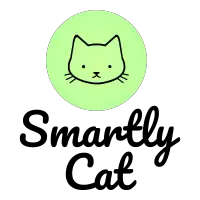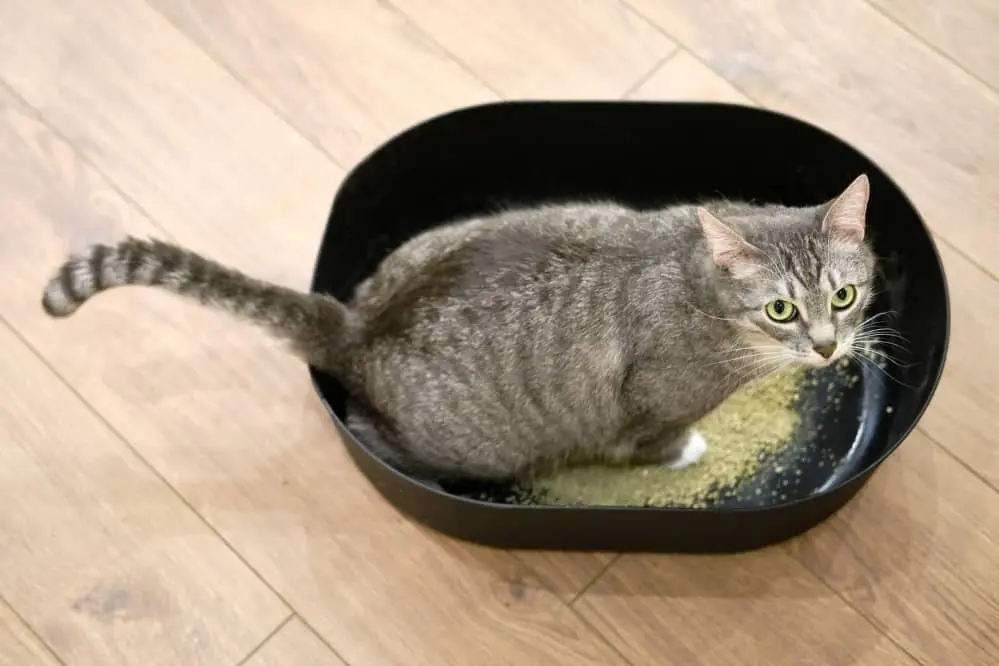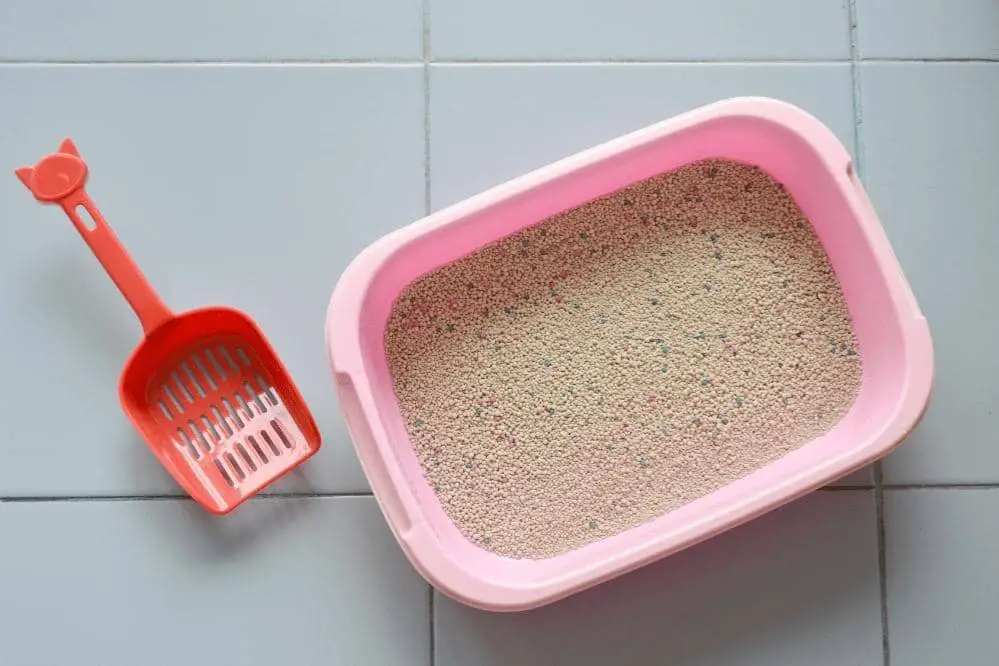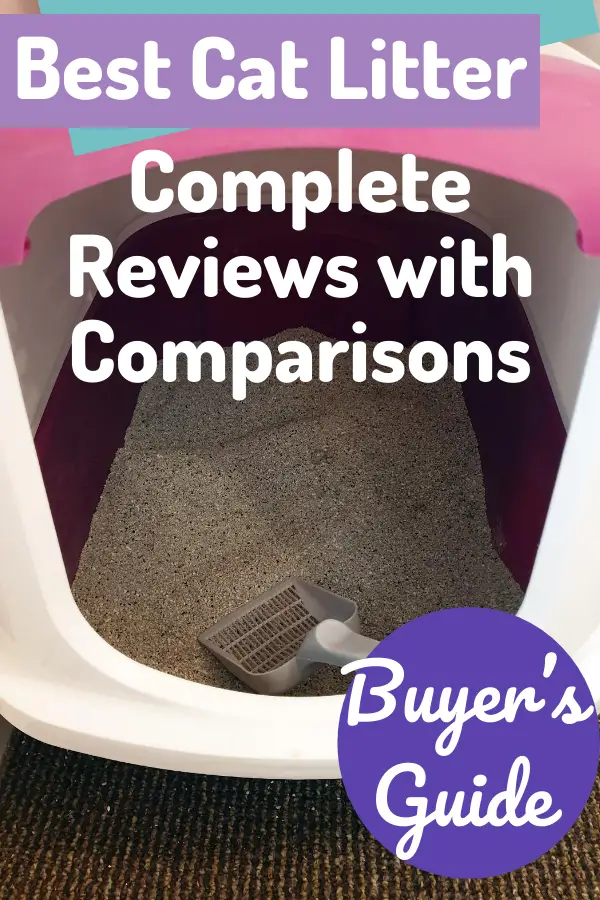Why Is My Cat Eating Litter and How Do I Stop it?
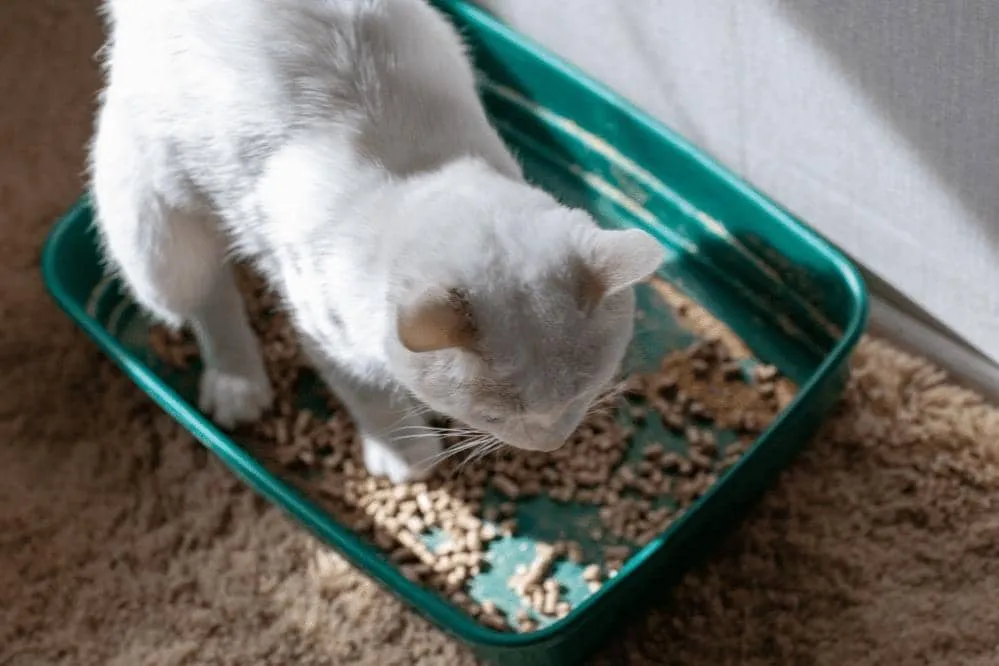
Your cat may display behaviors that at first seem like a strange quirks but it may actually be signs of your cat trying to compensate for a problem in its life. From personality to what the cat eats, changes in the way your cat acts can be indicative of that problem. A rather strange example of this is when your cat chooses to eat its own litter.
Why Do Cats Eat Litter?
As with many things in life, the reason why your cat is eating litter is going to be circumstantial. If your cat is a young kitten or a stray cat that has never had a traditional litter box before, your cat might try and take a few bites out of the litter much the same way toddlers put everything into their mouths. To your cats, this is a way to explore an unfamiliar surface. In cats that are only being curious, incidents of eating litter will be isolated to when the litter is first introduced, and most cats will have no interest in eating their litter beyond this as they will quickly learn that it is not food.
Another reason your cat might choose to eat litter is if it has been recently changed and you use a wheat or corn-based litter. The fresh litter pellets, in the eyes of your cat, will be little cornflakes that it can eat. This incidence is fairly uncommon and can fall under an extension of your cat being curious. After all, the cat was curious about the litter, ate it, and found that it is not necessarily inedible. However, this can expand into a larger field of cats eating litter, not because it is pleasant to the taste, but for nutritional benefit.
Chances are that there has been a time in your life when you have craved a specific type of food, whether that be protein-packed meat or a carb-filled sandwich. This is the body’s way of telling you that you need more of that resource. This function is not unique to humans and many other animals will operate the same way. If your cat has a nutritional deficiency, its brain may tell the cat to eat the mineral-rich litter to make up for that deficit. Most clay-based litters are surprisingly rich in minerals and even vitamins, meaning that if your cat has a nutritional deficit, you may absolutely come across your cat eating litter one day.
There is another subcategory of this where the cause of your cat eating litter is less focused on a nutritional reason, but because the cat is sick. It is a common myth that cats that eat their litter are anemic, and this myth didn’t originate out of thin air. Having a cat eating litter anemia case is fairly common, as a very prevalent mineral in most cat litters is iron and other trace minerals. As mentioned above, when the cat’s body senses that it is low in iron, it will tell the cat to consume something with iron in it, and for most cats, that will be their own litter. This also carries the unfortunate fact that you will need to consider why your cat may be anemic, as kidney disease and feline leukemia are common causes in cats.
Now that you are aware of why your cat might be eating its own litter, you might be wondering how to stop cat from eating litter. For most people, the reason why your cat is eating litter is going to be heavily dependent on the course of action you take.
Fixing Your Cat’s Litter-Eating Habits
If your cat is simply eating the litter out of curiosity, then you will usually just leave the cat alone to taste the litter and see that it is not anything that it should eat as a part of its regular diet. If your cats seem a little bit too interested in the litter even after taking a test bite, you can work on teaching your cats not to by lifting a kitten out of the box (only if it seems as if it is eating litter). You will have to be careful with dissuading your cats from eating in the litterbox because your cat can easily associate a scolding as “Do not use the litter box,” rather than “Do not eat the litter.” Because of this common confusion in cats, it is often best to let the curiosity surrounding the litter die down.
If your cat is eating the litter regularly, you will want to take your cat into the vet. Your vet will not only be able to determine if your cat is nutritionally deficient but will also be able to rule out any other reasons why your cat may be eating litter, such as if it is sick. While the vet is doing this, he or she will also be able to check and see if the litter has caused any damage in the cat’s body, as litter can lead to intestinal blockages quite easily.
From here, your vet will usually give you guidance on what to do based on the results of the exam. If the cause of your cat’s need to eat litter is centered around a nutritional deficit, then your vet will likely recommend a diet that meets your cat’s needs. Depending on how severe the deficit is, your cat may get supplements as well. Once your cats have gotten used to the prescribed diet plan, you can begin looking for other cat foods that carry the same nutritional value so that even if you aren’t using the vet’s preferred brand, you can still keep your cat healthy.
If your cat’s need for eating litter comes from a health condition such as anemia, then your vet will focus on treating the cause of the anemia and will work with you and your budget to determine the best way to handle this situation. Once your cat’s anemia has been taken care of, it should no longer have any cravings for its litter, allowing you to rest peacefully knowing that your cat will not be taking a midnight snack out of the litter box.
